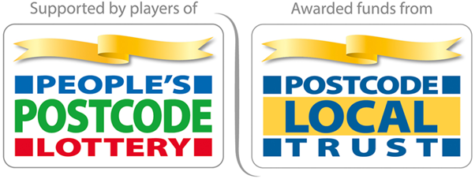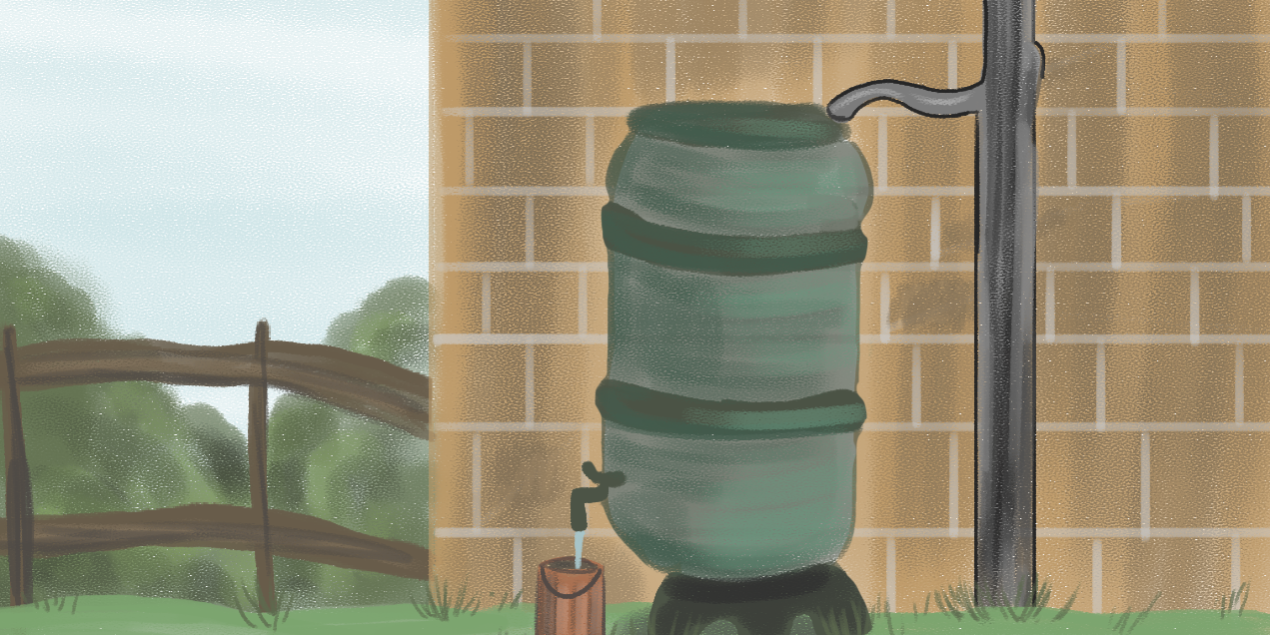BART has carried out a Sustainable Homeowner Water Management campaign in the Yate and Chipping Sodbury areas in South Gloucestershire. BART have identified these communities as target areas for the project as parts are vulnerable to flooding, with 100 homes and 40 businesses at risk of flooding according to the Environment Agency’s flood risk mapping. BART was granted funding from the Postcode Local Trust, and additional support from Bristol Water and the Environment Agency, to raise awareness and provide the tools for local homeowners to help.
This Sustainable Homeowner Water Management campaign is part of a wider project being carried out by BART and its partners throughout the Bristol Frome catchment. BART is engaging with landowners, businesses and homeowners throughout the catchment working to improve water quality, habitat and understanding of the issues facing the Bristol Frome and its wildlife. BART are delivering advisory visits throughout the project, working with landowners to develop and deliver opportunities to improve water quality and watercourse habitats, as well as deliver “in-river” works to enhance diverse flow conditions and reduce the impacts of land use in the headwaters of the Bristol Frome.
During May, BART was joined by volunteers from Bristol Water to post leaflets to residents of Yate and Chipping Sodbury, and introduce the local community to BART’s work in the Bristol Frome catchment. The leaflets provided information about the measures that homeowners could implement to reduce surface water runoff from their properties, through the introduction of Sustainable Urban Drainage solutions (SuDS) such as water butts, rain gardens, ponds, green roofs and permeable paving.
SuDS help us to manage water in our urban environments by helping to capture, store, use or slowly release water back into the drainage network and river system. Measures are designed to reduce the volume and speed of water entering the drainage system during heavy rainfall events. Carefully designed SuDs within our gardens, driveways, courtyards, and outdoor spaces can play a significant role in both the management of rainwater and the enhancement of our urban spaces by:
- Helping to reduce peak flows of surface water entering drainage networks and local waterways,
- Filtering urban runoff from roads and infrastructure to improve water quality entering our rivers and streams,
- Complimenting flood defence systems and natural flood management interventions in rural areas,
- Increasing habitat for wildlife within our urban spaces,
- Improving the aesthetics of ‘grey’ urban areas.
Alongside the campaign BART offered free water butts to local residents. Water butts assist with capturing runoff from our guttering along roofs, preventing water from draining straight into the drainage network and overwhelming networks, leading to localised flooding or Combined Sewage Overflow (CSO) spills. Accumulatively, the impact of many water butts could help reduce drainage system capacity and provide a source of water for use in our homes and gardens. It was great to see that many households already had water butts installed and are therefore already benefiting from rainwater harvesting.
During July, BART was joined by a helpful volunteer from Bristol Water to deliver water butts to residents that had requested them. BART provided advise on where best to install the water butt and how to attach them to down pipes to effectively capture and store rainwater from household roofs. During the project, a total of sixteen water butts were distributed to local residents across Yate and Chipping Sodbury. BART would like to thank the recipients and wider community for doing your bit to use water wisely.
Alongside the work on the ground, BART have produced digital educational resources to roll out to schools within the Bristol Frome catchment. The lessons have been designed to educate pupils about their local rivers and streams, the issues facing them and how they can help as individuals and as a class, through sustainable water use at school and home. We hope that the lessons will inspire our next generation of river guardians and empower individuals and communities to make a difference themselves.
BART would like to say a big “Thank you” to the communities that continue to support our work and to the Postcode Local Trust, the Environment Agency, and the Bristol Avon Catchment Partnership (BACP) for funding this project work.








